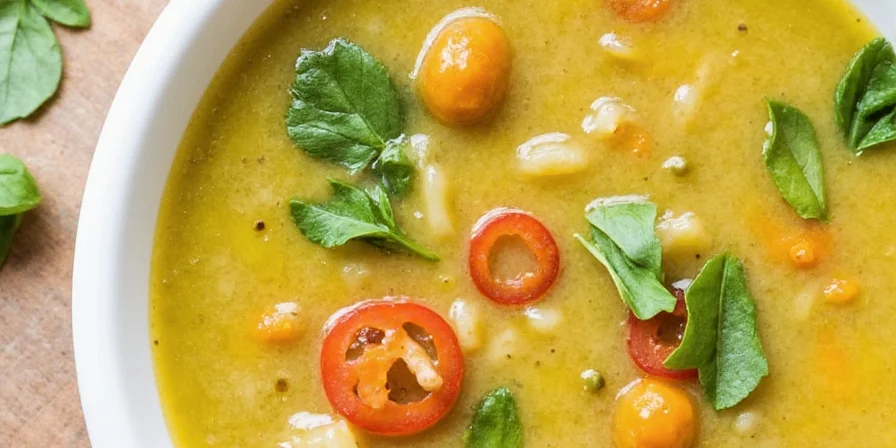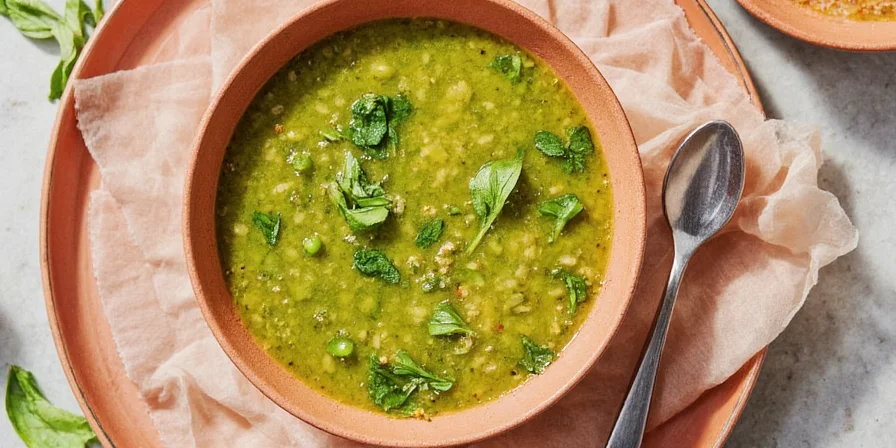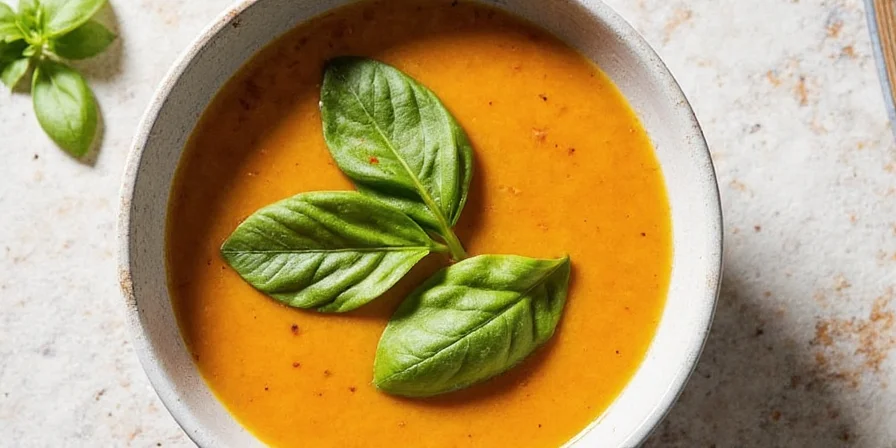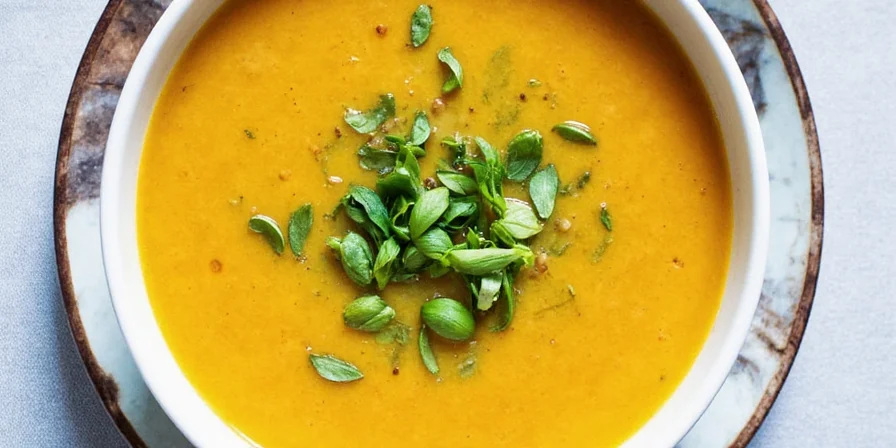Thai Basil Soup: A Global Spice Tradition with a Kick
If you're looking for a bowl of warmth that hits your taste buds like a monsoon and soothes your soul like a Thai massage, then it's time to dive into the aromatic wonderland of Thai Basil Soup. This isn't just a soup—it's a symphony of spices, an ode to heat, and a love letter to Southeast Asian culinary magic.
The Essence of Thai Basil Soup
Beyond its bold flavor and unmistakable aroma, Thai Basil Soup (often known as Tom Kha Gai when made with chicken) is a masterpiece of balance. It’s creamy without dairy, spicy without brutality, and savory with a hint of sweetness that dances on your tongue. Let’s unravel the layers of this iconic dish and discover how to bring a taste of Thailand into your kitchen—with a few spicy secrets along the way.
Table of Contents
- Spice Profile: What Makes Thai Basil Soup So Special?
- The Holy Trinity: Key Spices in Thai Basil Soup
- Top 7 Tips & Tricks for Perfecting Your Soup
- Variations Around the Globe: From Bangkok to Brooklyn
- Why Thai Basil Soup is Basically Liquid Therapy
- Visual Guide: Comparing Thai Basil Soup vs. Tom Yum
- Final Thoughts: Soup That Speaks to the Senses
Spice Profile: What Makes Thai Basil Soup So Special?
At first glance, Thai Basil Soup might seem like just another hot-and-sour broth—but looks can be deceiving. What sets it apart from other soups (like its spicier cousin, Tom Yum) is its rich coconut milk base, which softens the blow of chilies and herbs while allowing their essence to shine through.
This soup is a playground for spice lovers. The flavor profile includes:
- Heat – thanks to bird’s eye chilies
- Herbaceous freshness – from Thai basil and lemongrass
- Umami depth – via fish sauce or soy sauce
- Creaminess – courtesy of coconut milk
- Aromatic punch – from galangal root
The Holy Trinity: Key Spices in Thai Basil Soup
No Thai Basil Soup is complete without these three foundational ingredients. They’re the backbone of the dish and will turn even the simplest broth into a flavor bomb.
| Ingredient | Description | Flavor Contribution |
|---|---|---|
| Galangal | A root closely related to ginger but with a sharper, piney flavor | Adds peppery, citrusy notes without overwhelming heat |
| Lemongrass | Fragrant grass stalk with a lemony aroma | Infuses brightness and subtle acidity into the broth |
| Kaffir Lime Leaves | Potent leaves with an intensely aromatic zest | Contributes floral-citrus undertones unique to Thai cuisine |

Top 7 Tips & Tricks for Perfecting Your Thai Basil Soup
Making Thai Basil Soup at home doesn’t require a culinary degree, but a few pro tips can take your pot from “meh” to “magical.” Here’s how to nail every spoonful:
- Use fresh ingredients: Frozen kaffir lime leaves are okay, but nothing beats fresh ones. Ditto for galangal and lemongrass.
- Don’t skip the lime juice: A splash of fresh lime adds a zing that cuts through the richness like a machete through bamboo.
- Toast your spices: Lightly dry-toasting whole coriander seeds before crushing them boosts their nutty depth.
- Simmer gently: Letting the soup simmer slowly allows the flavors to meld beautifully—no need to boil everything to death.
- Add Thai basil last: Toss it in right before serving to preserve its bright, minty flavor.
- Adjust the spice: Start with fewer chilies and add more gradually. Remember, once it’s spicy, there’s no going back!
- Garnish with flair
Variations Around the Globe: From Bangkok to Brooklyn
As Thai food has gone global, so too has the humble Thai Basil Soup. Chefs around the world have adapted it to local tastes and ingredients. Here’s how it transforms across borders:
| Region | Adaptation | Signature Twist |
|---|---|---|
| Thailand | Traditional version with chicken or shrimp | Uses only Thai basil for authenticity |
| United States | Often uses regular basil or spinach | Substitutes coconut cream for extra richness |
| United Kingdom | Mild version for palates unused to spice | Less chilies, sometimes added after cooking |
| Japan | With tofu and miso additions | Umami boost via dashi stock |

Why Thai Basil Soup is Basically Liquid Therapy
You may not realize it, but slurping down a steaming bowl of Thai Basil Soup is doing more than satisfying your cravings—it’s also giving your body a wellness boost.
- Anti-inflammatory – Galangal and turmeric help reduce inflammation.
- Immune booster – Lemongrass and kaffir lime contain natural antimicrobials.
- Detoxifying – Coconut milk supports digestion and liver function.
- Stress reliever – A warm, comforting bowl can calm both stomach and soul.

Visual Guide: Comparing Thai Basil Soup vs. Tom Yum
Ever get confused between Thai Basil Soup and Tom Yum? Don’t worry—you’re not alone. Here’s a quick side-by-side comparison:
| Feature | Thai Basil Soup (Tom Kha) | Tom Yum |
|---|---|---|
| Base | Coconut milk | Clear broth |
| Spice Level | Moderate | Very spicy |
| Herbs Used | Thai basil, lemongrass, galangal, kaffir lime leaves | Lemongrass, galangal, kaffir lime leaves |
| Taste Profile | Creamy, slightly sweet, herbal | Hot, sour, salty |

Final Thoughts: Soup That Speaks to the Senses
In the grand theater of global cuisine, Thai Basil Soup takes center stage—not because it shouts the loudest, but because it whispers sweet, spicy poetry directly to your palate. It’s a dish born of centuries-old spice traditions, yet feels completely modern and endlessly adaptable.
Whether you’re a seasoned spice adventurer or just dipping your ladle into the world of global flavors, Thai Basil Soup promises a journey worth taking—one delicious spoonful at a time.
So next time you’re craving something that warms the belly and ignites the senses, skip the boring old chicken noodle and go for a steaming bowl of Thai magic. After all, life’s too short for bland soup.
Summary
Thai Basil Soup is more than just a warming dish—it’s a vibrant blend of spices, herbs, and cultural tradition. Packed with health benefits and adaptable to any kitchen, it’s the perfect example of how Global Spice Traditions continue to evolve and inspire across borders. Whether you stick to the classic recipe or experiment with your own twist, one thing’s for sure: Thai Basil Soup never fails to deliver flavor with flair.











 浙公网安备
33010002000092号
浙公网安备
33010002000092号 浙B2-20120091-4
浙B2-20120091-4